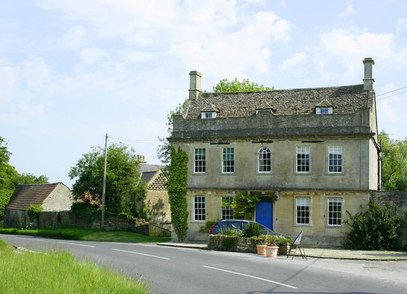
Old Jockey Anecdotes
Readers have sent in more stories to add to Katherine Harris' article about the hamlet of Old Jockey in the south of the parish
This is a fascinating article from Peter Ford which tells how squatters claimed the right to build on waste or common land by installing a hearth in the property by nightfall.
Left: The Old Jockey (picture Maurice Pullin)
Readers have sent in more stories to add to Katherine Harris' article about the hamlet of Old Jockey in the south of the parish
This is a fascinating article from Peter Ford which tells how squatters claimed the right to build on waste or common land by installing a hearth in the property by nightfall.
Left: The Old Jockey (picture Maurice Pullin)
|
More About Old Jockey
There are documents linking the occupants of The Jockey with brewing and selling beer as well as there being an Innkeeper. When I was a lad in the 1950’s, the occupant was a single old man called Bird. |
Peter Ford recalls his father's |
Some of his predecessors are mentioned in Katherine Harris' story. I was always told that, once the main road from London stopped travelling over Kingsdown, the Public House moved to what is now called Crossroads Farm on the A365. My father once said he was shown Pub Fixtures and Fittings in the cellar of that building. The occupants in the 1950’s and 1960’s were a family called Hall. John Hall is listed as the publican in 1878 and 1880 in documents in the Wiltshire History Centre.
You mention a Jerry Built bungalow at Blue Vein. My father always said the property in question was built in a day, as long as you had smoke coming out of the chimney by nightfall you could claim residency on the land.[1]
You mention a Jerry Built bungalow at Blue Vein. My father always said the property in question was built in a day, as long as you had smoke coming out of the chimney by nightfall you could claim residency on the land.[1]
Footnote
[1] This is a fascinating anecdote because it dates back before Tudor times. There was a widely-held medieval belief that you could obtain squatter's rights by building a residence on common land and burning a fire in the hearth between sunrise and sunset. To try to counter these claims, Elizabeth I passed a law in 1588 called the Erection of Cottages Act forbidding landless peasants from erecting cottages on common land without the sanction of the local Justice of the Peace.
[1] This is a fascinating anecdote because it dates back before Tudor times. There was a widely-held medieval belief that you could obtain squatter's rights by building a residence on common land and burning a fire in the hearth between sunrise and sunset. To try to counter these claims, Elizabeth I passed a law in 1588 called the Erection of Cottages Act forbidding landless peasants from erecting cottages on common land without the sanction of the local Justice of the Peace.